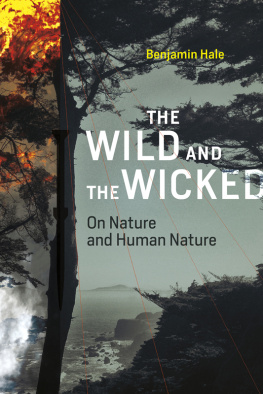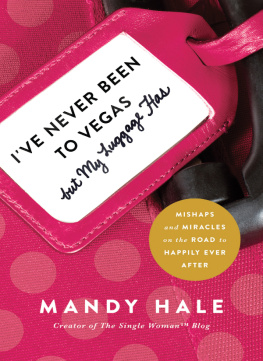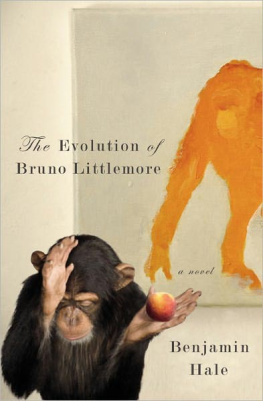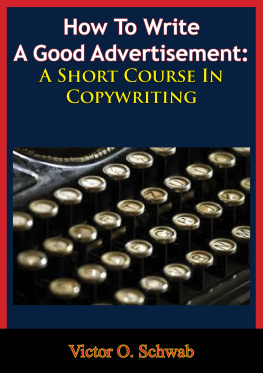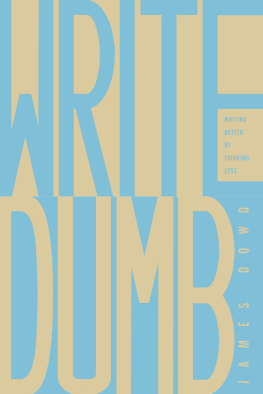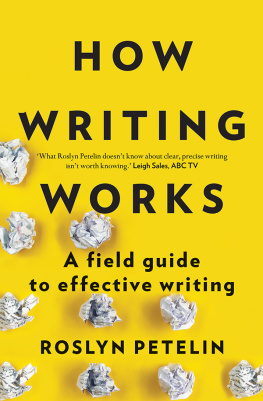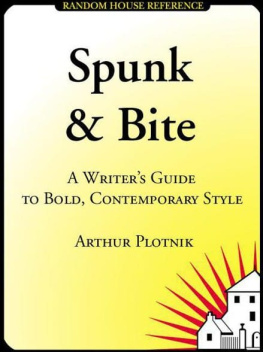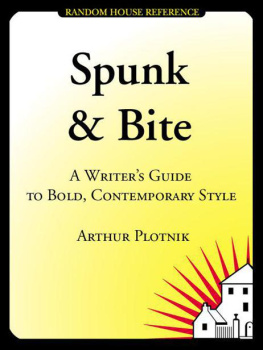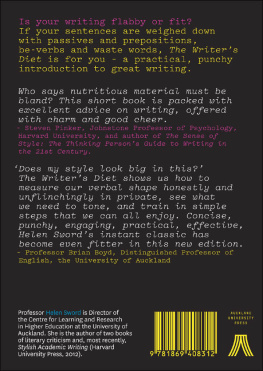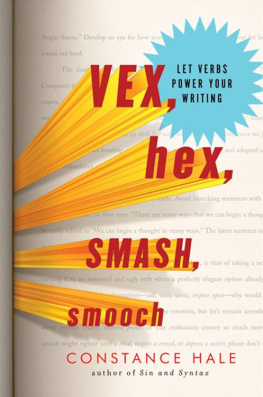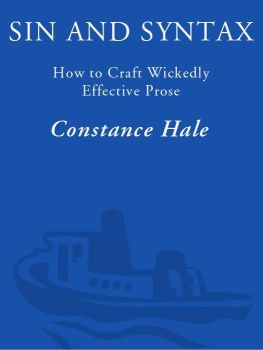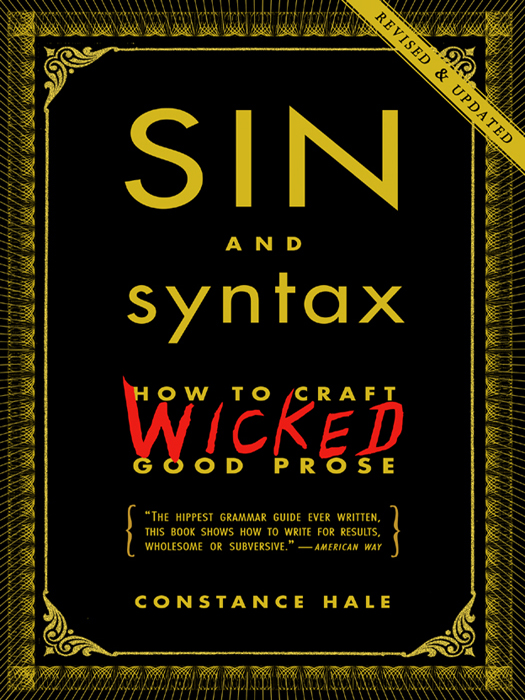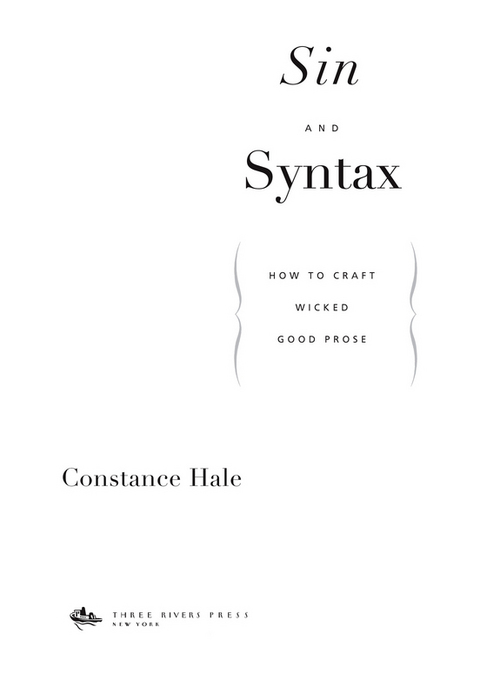Praise for Sin AND Syntax
Probably the hippest grammar guide ever written, this book shows how to write for results, wholesome or subversive.
American Way
Move over, grumpy schoolmarms everywhere. Your time has come. For the writer or wannabe, Sin and Syntax is an urgently needed, updated, and hip guide to modern language and writing. Nobody but Connie Hale could make the elements of twenty-first-century style so much fun.
Jon Katz, media critic and author of Running to the Mountain and Virtuous Reality
Sin and Syntax is one of the rare books that recognizesand even celebratesthe fact that good writing has little to do with rules and much to do with a true understanding of effective prose. Connie Hale provides us an invaluable service by showing us what works and what doesnt in the real world, regardless of what the pedants say.
Jesse Sheidlower, editor at large of the Oxford English Dictionary and author of The F-Word
This new grammar book is light-years ahead of what youd read in eighth-grade English: With vivid, contemporary examples of what to do and what not to do, its fun to read.
Charlotte Observer
In Sin and Syntax: How to Craft Wicked Good Prose, Constance Hale provides a plugged-in, cutting-edge alternative to the musty prescriptions of Strunk and White. Here you will find an open-minded, exuberant approach to style that is intelligent and refreshing.
Charles Harrington Elster, in the San Diego Union-Tribune
Hale has put together a writing/grammar manual that is fresh and fun. The basic rules are here, and they are well explained. The sin from the title is partly advice on when and how to break these rules. The other sins are examples of oft-repeated mistakes this guide will help [readers] use effective and artful language. The examples range from Dr. Seuss books to John F. Kennedys speeches to commercials. Easy to understand and appealing to a broad range of readers, this book is highly recommended for all libraries.
Alisa J. Cihlar, Monroe P.L., WI, in Library Journal
This is a wonderful how-to book about writing stuff people want to read. Those who have studied the subject might think of Hale as a peacemaker between the Strunk and White tribe devoted to precision and the more entertaining descendants of Henry Mencken, full of energy and inventions. Nonwriters who just want advice that wont put them to sleep will find sentences they can dance to.
Mike Maza, in the Dallas Morning News
Constance Hale, in Sin and Syntax: How to Craft Wicked Good Prose, is the first grammarian Ive seen in a long time brave enough to revive diagramming.
Ed Gray, in the Arkansas Democrat-Gazette
Hales analyses of texts, from Faulkners Absalom, Absalom! to the jargon-laden prose of government and corporate documents, are full of insight because she lets the reader in on how language has the power to move us or confuse us.
Charles K. Bultman, in California Lawyer
Hale [is] good at explaining rules, and she provides a lot of examples of writing that really is sinfully good. Osmosis alone should help you here.
Gary Kaufman, in Salon
ALSO BY CONSTANCE HALE
Wired Style: Principles of English Usage in the Digital Age
Vex, Hex, Smash, Smooch: Let Verbs Power Your Writing
Copyright 1999, 2013 by Constance Hale
All rights reserved.
Published in the United States by Three Rivers Press, an imprint of the Crown Publishing Group, a division of Random House, Inc., New York. www.crownpublishing.com
Three Rivers Press and the Tugboat design are registered trademarks of Random House, Inc.
A previous edition of this book was originally published in hardcover in 1999 by Broadway Books, an imprint of the Crown Publishing Group, a division of Random House, Inc.
Matthew Zapruder, April Snow from Come on All You Ghosts. Copyright 2010 by Matthew Zapruder. Reprinted with the permission of The Permissions Company, Inc., on behalf of Copper Canyon Press, www.coppercanyonpress.org.
Excerpt from Girl from At the Bottom of the River by Jamaica Kincaid. Copyright 1983 by Jamaica Kincaid. Reprinted by permission of Farrar, Straus & Giroux, LLC, and the Wylie Agency, LLC.
Michael Maslin cartoon. Copyright 1998 by Cond Nast. All rights reserved. Originally published in The New Yorker. Reprinted by permission.
Six-Word-Memoirs reprinted with the permission of Larry Smith and SMITH Magazine, www.smithmag.net.
Haiku Error Messages first appeared in Salon.com. An online version remains in the Salon archives. Reprinted with permission.
From Whitey on the Moon, Small Talk at 125th and Lenox. Copyright 1970 by Gil Scott-Heron. Reprint permission from Rumal Rackley, administrator of the Estate of Gil Scott-Heron.
From Listen Mr. Oxford Don from Mangoes and Bullets. Copyright 1991 by John Agard. Reprinted by permission of Serpents Tail.
Library of Congress Cataloging-in-Publication Data is available upon request.
eISBN: 978-0-385-34693-1
Cover design by Maria Elias
v3.1_r1
To Madeleine Carter Mayher,
who gave me her love
of the mother tongue
Contents
PART 1
WORDS
PART 2
SENTENCES
PART 3
MUSIC
Introduction
Driven by some combustible mix of passion (for the power of words) and desperation (so many snags in your sentences!), youve picked up a book called Sin and Syntax. What, youre wondering, does syntax (that collection of prissy rules telling us how to put words together) have to do with sin (the reckless urge to flout propriety)?
Sin and Syntax plays with dynamic tensions in language: The underlying codes that give prose its clarities yet fail to explain its beauties. The sludge that muddles writing. The delight in the wacky. Sin and Syntax is about the skill that allows you, the writer, to harness such complexities, to create prose that thrills.
Are you ready to turn syntax from a minefield into a stamping groundyour stamping ground? Forget schoolmarmish rules. Forget grammar as it was drilled in grade school. Rest assured, youll get your grammar here, on the theory that its best to know the rules before you break them. This book will indeed show you how to avoid red-pen comments, but, more important, itll show you how to make some sinful mischief.
IF ALL THIS SEEMS paradoxical, get used to it. Language is paradox.
Sin and Syntax dwells in contradictions. It dabbles in the eloquence of tradition, the intelligence of creoles, the decadence of slang. Well root around where language is most playful: in the pop, the vernacular, the mongrel tongues. Well examine how the highbrow and the lowbrow define the edges of prose and how the middlebrow dooms it to mediocrity. Well diss legalese and computerese and ditch the lifeless rhythms of Standard Written English.
Well also summon the spirit of renegades who ignore taboos and make the language sing, from Shakespeare to Shake n Bake and from Joan Didion to Junot Daz. With a little Bob Dylan and Nicki Minaj thrown in. Well wallow with Walt Whitman, who ridiculed the dictionary makers, insisting that language has its base broad and low, close to the ground. Well accept English as a robust, swarthy tongue, capable of surviving tumult and thriving on change.


